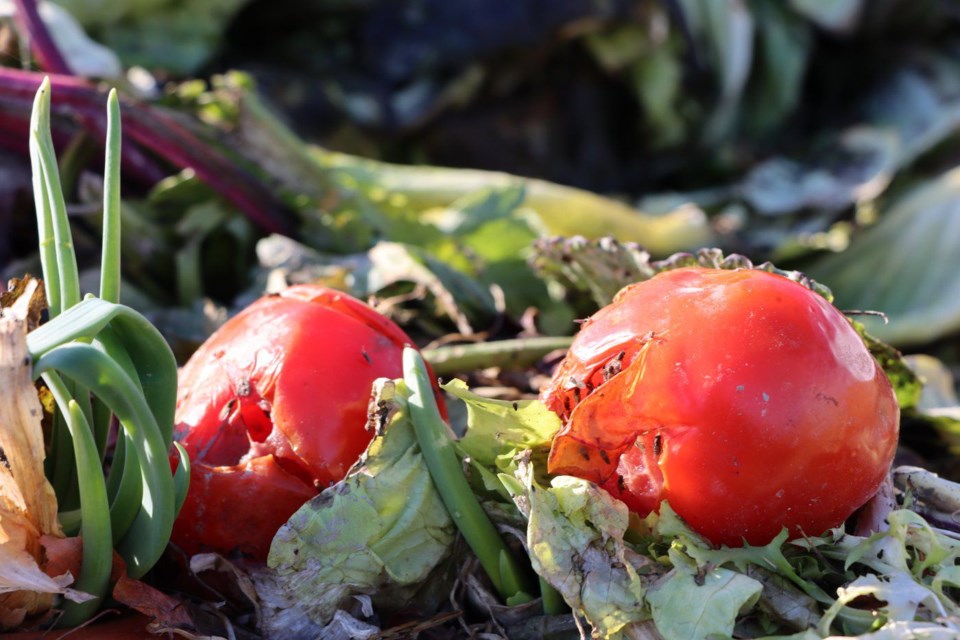Each year, about half of Canada’s food supply goes to waste. Fields of produce are plowed under due to cancelled orders; tomatoes destined for pasta sauce fall off conveyor belts and never make it to store shelves. That might be about to change.
On Thursday, Marie-Claude Bibeau, federal minister of agriculture and agri-food, announced a national competition for projects to reduce the country’s food waste. The program, a first step of a national food waste reduction plan, will fund novel projects to reduce waste throughout the supply chain.
It’s a problem that extends well beyond household compost bins. Roughly 35.5 million tonnes of food is wasted in Canada each year, generating about 56.5 million tonnes of CO2 equivalent, according to a 2019 report by Second Harvest, a non-profit that redistributes food that would otherwise be wasted to food banks and charities. More than half this waste is created before food hits grocery store shelves.
“Reducing food waste is necessary for so many reasons: It can help save consumers money, improve food security, support efficiency in the agriculture and food sector and significantly reduce greenhouse gas emissions,” said Bibeau in a written statement.
“We actually do have a pretty solid understanding of where that food loss and waste is across the supply chain,” said Lori Nikkel, CEO of Second Harvest.
Nikkel hopes the $10.8-million competition announced Thursday will act as a spark for action on the issue.
“Having the knowledge and then actually doing something about it … are two different things,” she said.
The contest is open to everyone, from businesses to governments to individuals. Proposals to the contest will go through several rounds of evaluation, with two finalists awarded $1.5 million each to implement their plan. Efforts to reduce, divert and repurpose wasted food so it remains on the market would be well-suited, Agriculture and Agri-Food Canada explained in a statement.
That approach — focused on reducing waste throughout the supply chain instead of redistributing it to charities — has some observers cautiously optimistic that critiques of previous food waste reduction efforts are being heard.
“The problem with (many programs) is that (they) just reinforce the idea that food waste and food banks and charity are an effective response to food insecurity,” said Graham Riches, professor of social work at the University of British Columbia. He pointed to the federal government’s recent $50-million Surplus Food Rescue Fund as an example.
The program, which was announced in August, redistributes food that was stranded by the pandemic-related food service and hospitality shutdown to food banks across Canada. The approach dealt in part with the immediate crisis: About 5.8 million kilograms of food was stranded when the pandemic hit, and in May, Statistics Canada reported that over 1.5 million more people had become food insecure since 2018, and one in seven Canadians hadn't had enough food during the previous month.
Yet while it dealt with the immediate crisis, Riches said the program didn’t challenge long-standing and more problematic patterns in government policies focused on redistributing excess food produced by the industrial food system to food banks and charities. It’s a problematic approach, he explained
“Food waste is a product, is a symptom of a dysfunctional industrial food system … but it’s being presented as an answer to poverty and food insecurity, which is a function of the capitalist market, but also broken social safety nets.”
That’s because food insecurity arises out of social and economic inequality, he explained. Fully addressing it means overhauling income support systems to ensure that people have enough money to buy their own food and don’t need to rely on food banks at all.
“People need money in their pockets to get by,” he said. “They don’t actually need handouts, food handouts, which do nothing for the economy other than subsidizing low wages and subsidizing low welfare benefits.”
Meanwhile, food waste is a separate issue that requires changing how food is grown, processed, transported and sold, an approach that could be reflected in the contest announced this week.
“I think it’s a very good thing that the federal government is developing this national food waste reduction challenge,” he said.
“You’ve got to reframe what you’re doing about … the industrial food system and how it produces food from the farm to the table and the various stages that food goes through on its transfer to people’s mouths.”
Marc Fawcett-Atkinson, Local Journalism Initiative Reporter
Read more from Canada’s National Observer



